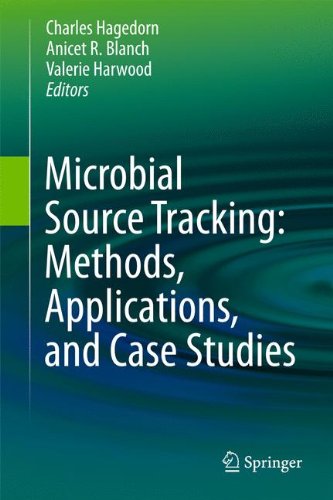

Most ebook files are in PDF format, so you can easily read them using various software such as Foxit Reader or directly on the Google Chrome browser.
Some ebook files are released by publishers in other formats such as .awz, .mobi, .epub, .fb2, etc. You may need to install specific software to read these formats on mobile/PC, such as Calibre.
Please read the tutorial at this link: https://ebookbell.com/faq
We offer FREE conversion to the popular formats you request; however, this may take some time. Therefore, right after payment, please email us, and we will try to provide the service as quickly as possible.
For some exceptional file formats or broken links (if any), please refrain from opening any disputes. Instead, email us first, and we will try to assist within a maximum of 6 hours.
EbookBell Team

4.7
26 reviewsMicrobial source tracking (MST) is a sub-discipline of environmental microbiology that has emerged and grown in response to the inability of conventional fecal indicator bacteria (such as Escherichia coli and enterococci) to discriminate among the many possible sources of fecal pollution in environmental waters. MST’s current and potential applications range from beach monitoring to total maximum daily load (TMDL) assessment of pollution sources, which in turn will mediate greater protection of public health and improvement of environmental water quality.
This comprehensive book taps the expertise of many of the leading research scientists from an international assemblage, and considers a geographic range from the U.S. to China, New Zealand, Australia, and the EU. It addresses subjects ranging from the fundamentals of MST methods, their pros and cons, and performance criteria necessary during method development, and application, to case studies from beach, agricultural, and urban watersheds. Separate chapters focus on viral-, protozoan-, chemical-, and mitochondrial DNA-based methods. Specialized topics include legal and TMDL-associated issues, public perceptions, statistical analysis, food safety, national security, and using MST in undergraduate education.
The audience for this work will include advanced undergraduate and graduate students from scientific and engineering disciplines who are interested in microbial water quality, research scientists, regulators, and others interested in the fundamentals, applications and interpretation of MST methods and data.